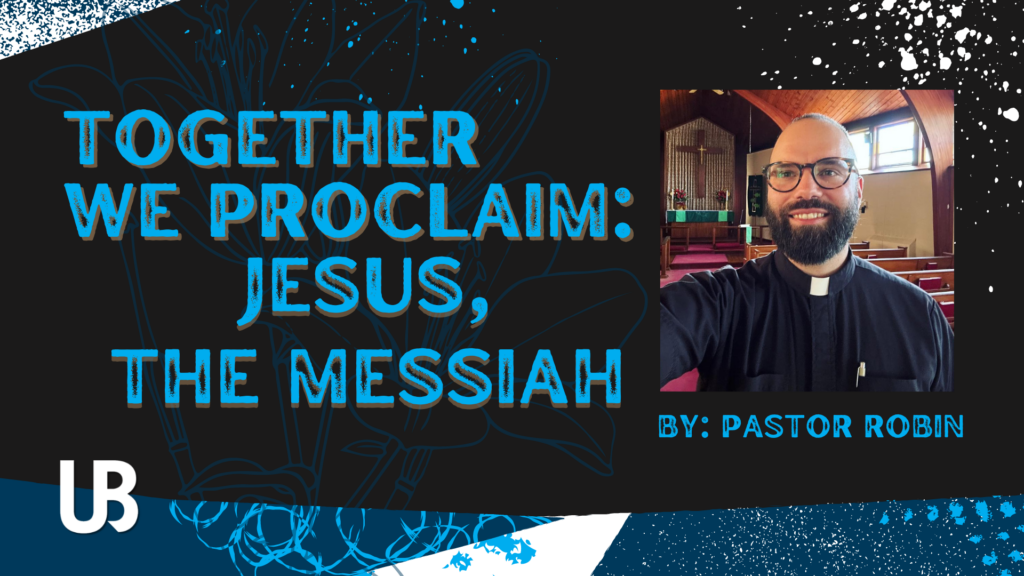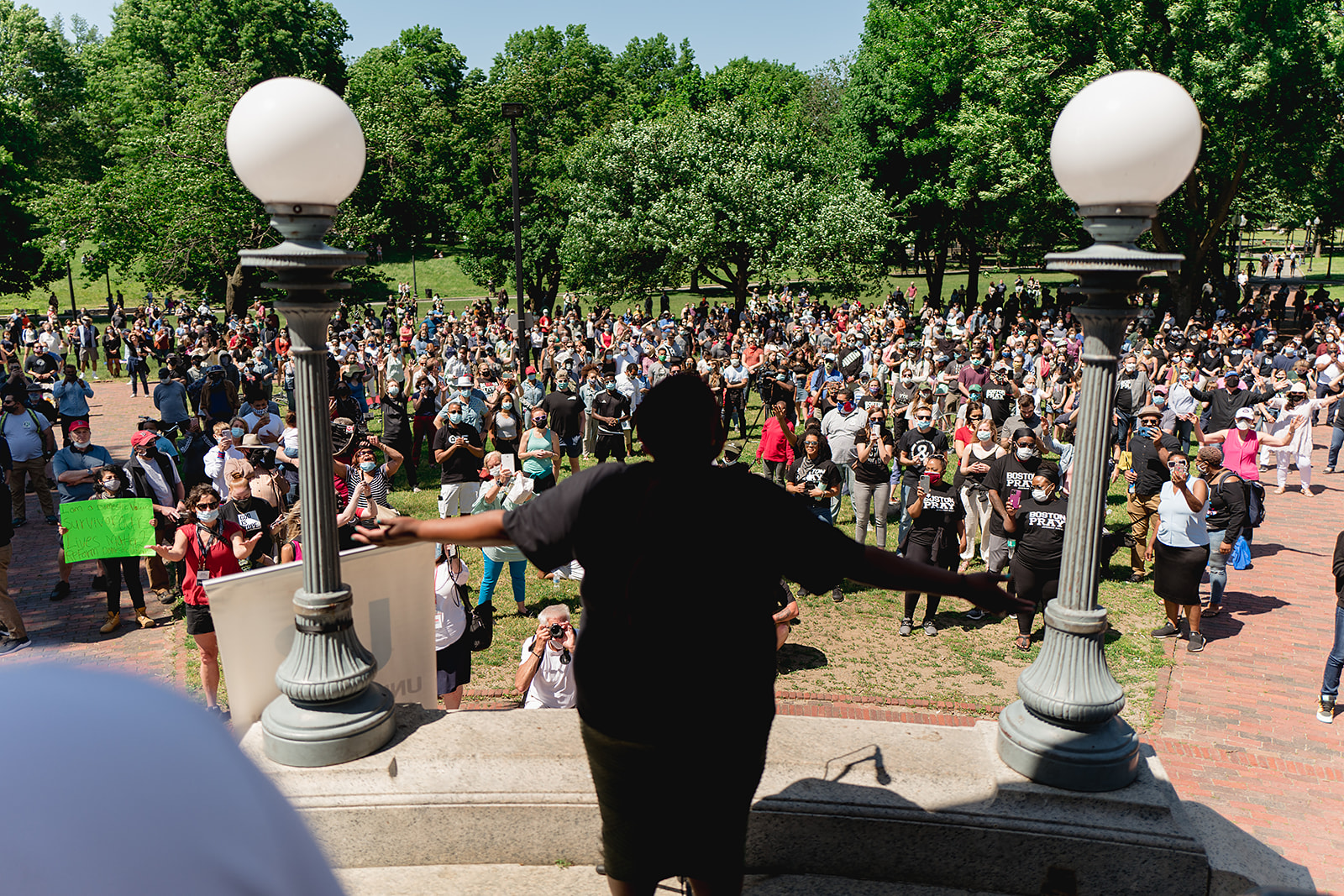
Christ is Risen! Our guest blogger this week is Pastor Robin Lutjohann, pastor of Faith Lutheran Church in Cambridge. Pastor Robin and Pastor Raphaela Mueller have been offering powerful scriptural reflections daily during Lent. Read below to hear Pastor Robin’s reflection on the communal significance of Jesus as the Messiah and how our daily encounters with the Risen Christ bind us together as one family of God.
Jesus went on with his disciples to the villages of Caesarea Philippi; and on the way he asked his disciples, “Who do people say that I am?” And they answered him, “John the Baptist; and others, Elijah; and still others, one of the prophets.” He asked them, “But who do you say that I am?” Peter answered him, “You are the Messiah.” And he sternly ordered them not to tell anyone about him. (Mark 8:27-30)
Because we live in a much more individualist culture and time than Jesus, it is easy for us to mis-hear Jesus’ question as an invitation to make a personal confession of faith. A “what does Jesus mean to me” kind of testimony. It doesn’t help that in English, both singular and plural second person pronouns are the same, “you.” But Jesus is asking “you” in the plural: “Who do ya’ll say that I am?” He is asking his disciples as a community of people who have been – together – transformed by his presence among them. And even though Peter alone answers, he answers in a way that isn’t just about him and his own personal thoughts and musings. For example, he doesn’t say: “You are MY Lord and savior.” Or: “I give my life to you.” Or: “I think… I believe… My theory is…” He isn’t really speaking for himself. He is speaking with the voice of his ancestors and their long-time expectation of an anointed heir of the Davidic kingship, when he says: “You are the Christ / Messiah / Anointed One…”
I’ve said it before and I’ll say it again: It makes sense that in our church, we recite the Creed together, in unison, when we gather. Even though it is said in the singular “I believe…” it is a collective “I” that speaks here. It is the “I believe” of the united voice of the one Body of Christ, the whole community of all those who trust in him as the promised savior not only of their own individual souls, but of the whole cosmos.
Don’t get me wrong, our individual concerns and fears, our particular biographies and thoughts are important to God. And there is a time and place to make our faith personal and individual, like when Thomas says, “My Lord and my God!” After all, no one experiences love in the general. If a loved one says to you, “I love you,” I really hope you wouldn’t reply, “I love all people.”
But when it comes to answering the question, “Who is Jesus?” a purely personal testimony is not sufficient. It is good, as far as it goes, but is not yet “the Gospel” that saves and changes the world.
Only by offering our individual stories and opinions to a communal reality, can we begin to really say “who Jesus is” to each other and to the world. Because I, by myself, have too limited a point of view. There’s simply a lot that I am bound to be missing. I need your help, so I can see, through your eyes, more of who this Jesus really is. There are things you have learned and experienced that I have not. That is why I need you. And that is why you need me, too. That is why we need the Church. We might be able to believe alone. But we cannot confess Christ alone. It is a communal witness. Christ sends into the world not individual believers, but a people.

It’s like those 3D glasses kids used to have with the round slides that you could pop in. A pretty crude technology compared to today’s Apple glasses or whatever. But that’s basically still how 3D vision works: Two slightly different perspectives, each seen by one of our eyes, are put together by our brains into one picture that holds these differing perspectives together to see a fuller picture with more depth — and more like the real thing! Now multiply that by a few billion — and then you get the complex, crystalline jewel through which the Spirit refracts the Word of God to us, that we may truly see, truly understand all that Jesus is and does for us. In this lifetime we will never be finished seeing, hearing, comprehending anew, with every person and perspective adding another facet to the total mosaic.
Maybe this helps explain Jesus’ enigmatic warning at the end: to not “tell anyone about him.” It’s not that he didn’t want more people to be part of this community of faith. It’s that he didn’t want people to have a cheapened, second-hand experience, a kind of “faith by hearsay” information, but not transformation. Unfortunately, this kind of dead belief is what passes for “faith” a lot these days. But real faith is not some things you heard someone say, or what your parents told you to believe, or a list of intellectual propositions to which you assent. Faith, in essence, is trust in someONE more than belief in someTHING.
Only after the Holy Spirit was poured out on the community in Pentecost – and has kept on pouring ever since! – was it possible for people who had not walked with the man from Nazareth to have a living encounter with the Risen Christ. This encounter binds them into that same communal “I” that can say with Peter and the whole church: “You are the Messiah!”
Leave a Reply